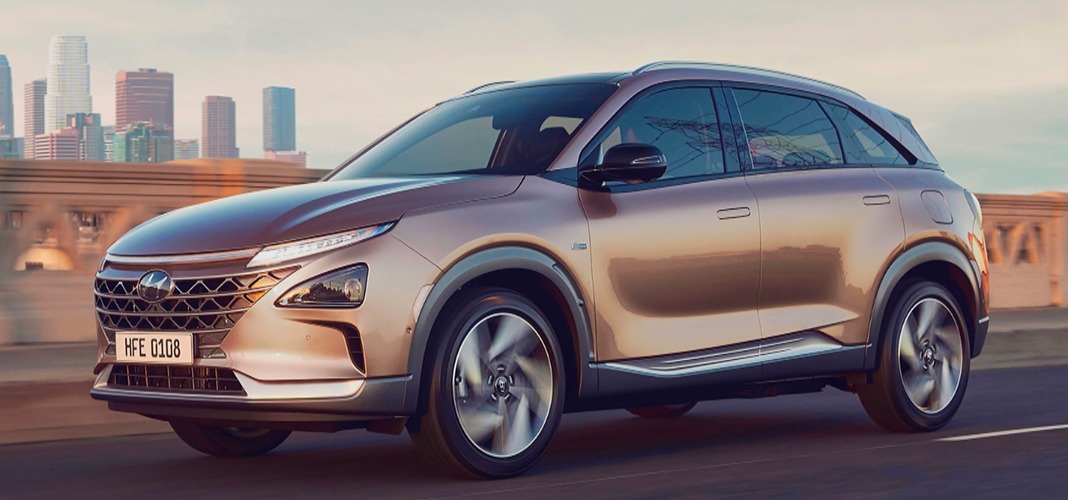
We take a look at Fuel Cell vehicles sales performance in 2019, the introduction of the Hyundai Nexo was the much needed spark that ignited sales (+90% YoY) to its best year ever (7,500 units), so Fuel Cells finally surpassed the EV sales score of…2010.
If they follow the same growth curve as plug-ins, we should see this technology reach 200.000 sales by 2022...Or not.
But let's look at the individual performances of the three models currently on sale:
Hyundai Nexo - The first full year of the Korean Fuel Cell model ended at 4,818 units, 87% of them coming from its domestic market, the only market in the world where FCEV's are making itself noted. This result allowed Hyundai to recover the Best Seller title for the first time since 2014, shattering at the same time the Mirai previous yearly record (2.689 units, in 2017). For this year, expect the Korean SUV to continue growing, maybe hitting some 7.000 units for the full year.
Toyota Mirai - 2.407 Mirai were registered in 2019, a slight (27 units) increase over the previous year, but below the 2017 result. Basically, the current Mirai is not capable of selling more than 2.000-something units/year. Maybe the Second Generation could sell around 1.000 units/month?
Honda Clarity FCEV - 349 units were registered in 2019, half of the 2018 numbers. Maybe realizing the disaster in its hands, Honda decided to switch to electric cars, and if the attractive Honda e is any indication, it should be an interesting future…

While I don't see FCEVs being a success, I do expect the new Mirai to do better than the original, better range & looks should go a long way.
ReplyDeleteAlso somewhat better interior space IIRC... Though still can't compete with the vast interior of a BEV on a dedicated platform of course.
DeleteHyundai has done the right thing by creating Nexo (CUV) from the ground up as an FCV. This is also backed by Korean government which gives massive subsidies to promote FEV and eliminate BEV.
ReplyDeleteToyota on the other hand has designed new Mirai 2.6" / 66 mm lower in height in a market where everyone wants taller CUVs. For sure most customers will reject Mirai. Just wait and watch.
Honda Clarity-FEV is nowhere in the picture. First of all, it shares the same model with PHV & BEV with PHV being the primary, BEV the secondary and FEV just a tertiary vehicle. Clarity will go down the wayside.
Definitely not everyone wants CUVs... Though it is true that the taller form factor likely makes it easier to deal with the packaging issues of the huge hydrogen tanks.
DeleteKorea has large subsidies for BEVs too.
DeletePer this report, Hyundai sold 4,987 Nexos.
ReplyDeleteCan you please check.
https://insideevs.com/news/395333/2019-hyundai-sales-80000-plugin-cars/
Last I heard Honda hasn't quite given up on the hydrogen pipe dream yet... Though they have had to acknowledge the reality that they can't get by without BEVs, the acknowledgement is pretty weak: while the Honda E is very promising (albeit rather niche) with its dedicated platform, apparently Honda doesn't have any other vehicles on dedicated BEV platforms in the pipeline for another five years...
ReplyDeleteA fuecel vehicle is also a electric vehicle in the sense, it has
ReplyDelete* motor: to power the wheels
* stop/start: stops the motor when the vehicle is stopped in traffic
* small (1,5 KWh) battery : to capture breaking energy and use it for acceleration
All that automakers have to do is add a slightly bigger battery (10 KWh), a socket to charge to a fuecel vehicle and it will become fuecel/battery vehicle which can be charged at home for short trip of 30 - 50 km and for longer range, using hydrogen. This way, both battery and fuecel can be put to the best use and making use of the existing motor, stop/start system and the bigger battery taking over the role of smaller (1,5 KWh) battery.
Note: Its easier to say/write the word "fuecel" in short form instead of saying/writing "few yel cel" in long form.
Pretty sure "fuel" is one syllable? (And either way, that wouldn't be a good enough reason to invent nonsense words...)
DeleteBTW, I prefer the term "hydrogen vehicle". Although *theoretically*, hydrogen combustion engines are also possible, in practice hydrogen vehicles always use fuel cells. (While on the flip side, not all fuel cells use hydrogen: and while all fuel cell *vehicles* use hydrogen right now, that might very well change in the future...)
Plug-in hybrid hydrogen fuel cell vehicles are not a new idea: Daimler presented one like two years ago... Though I haven't heard anything about it since then -- so no idea if/when they actually intend to bring it to market.
DeleteDid you see that Nikola Motors announced a pickup truck with a large battery and a fuel cell range extender? https://electrek.co/2020/02/10/nikola-motor-badger-electric-pickup-battery-fuel-cell-hybrid/
Delete(Don't give it much chance of actually hitting the market though, with Nikola being the new king of ZEV vapourware...)